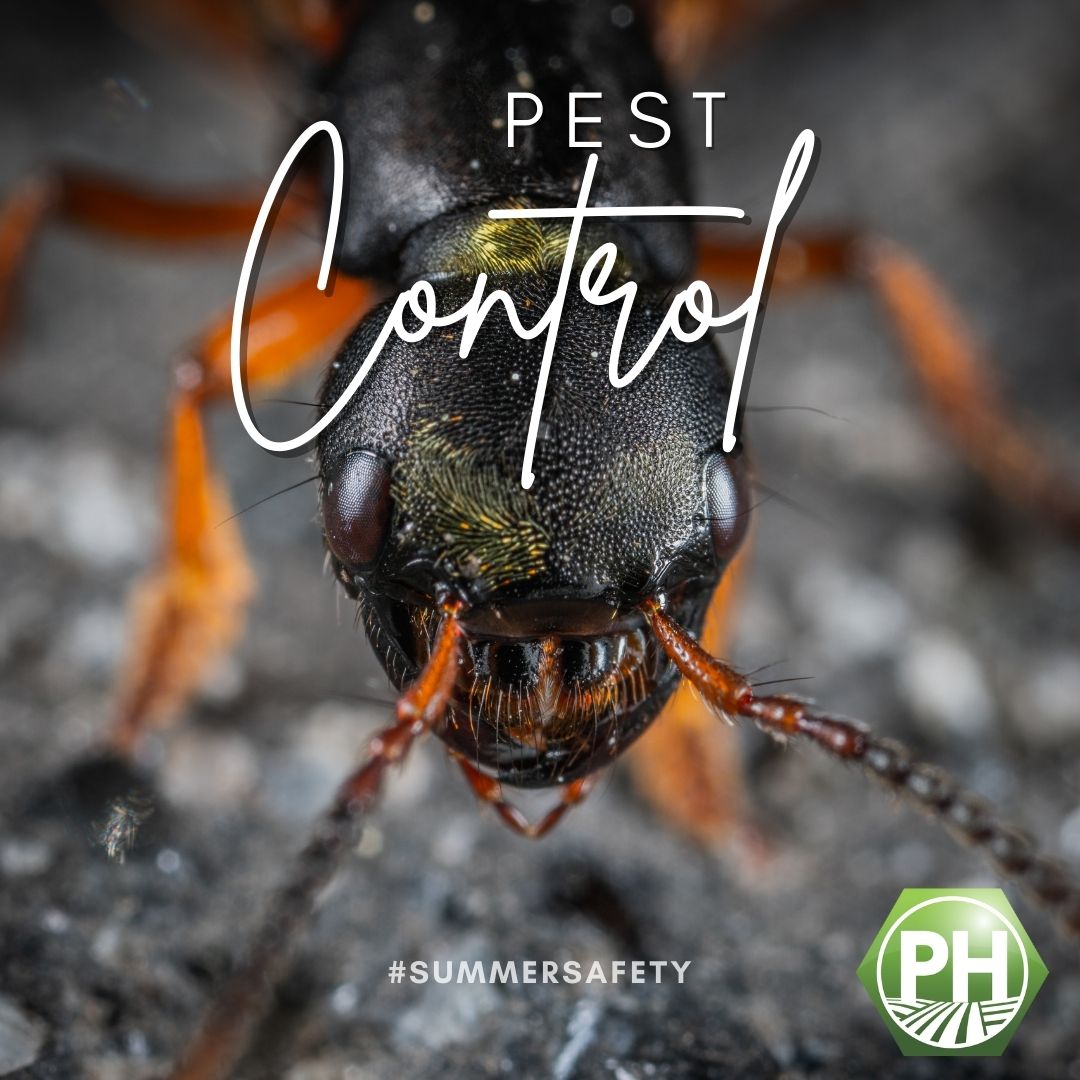
An ounce of prevention is better than a pound of cure! Check out these pest control tips for in and around your home:
- IN THE GARDEN
- Wire Cloches – to protect a specific plant or a few plants from rodents or animals.
- Full Fence – when wire cloches are too expensive due to the size of your garden, fully fencing it in using chicken wire may be your best option.
- Scent Repellents – use essential oils such as peppermint or citronella to deter pests. Try putting those essential oils in coffee grounds as an extra deterrent – the coffee grounds also act as fertilizer!
- Alternate Food Source – set up bird feeders to attract animals to something more tasty, leaving your plants alone
- Pest-Deterrent Plants – plant herbs such as mint or lavender that most pest or rodents do not like. Ferns, irises, daffodils, and lilies may work, too!
- IN YOUR HOME
- Keep Surfaces Clean – Wipe up crumbs or spills and clean up after every meal. Vacuum and sweep floors regularly, including under furniture and appliances and under rugs and mats.
- Eliminate Ant Trails – sweeping and mopping isn’t enough to get rid of those scented ant trails! Use a natural solution such as ¼ white vinegar to 2 cups of water and 10 drops of peppermint oil to clean surfaces or spray where you have seen ants before. Ant bait will be need to rid the ones in the home already, but ridding your home of the trails will prevent more from following inside.
- Inspect Your Crawl Spaces – Inspect crawlspaces and basements regularly for any pest or rodent damage. Repair quickly and keep those areas dry.
- Keep Garbage Cans Closed – or any other containers with contents that might attract pests like pet food containers. This also counts for outdoors, too!
- Clear the Clutter – stacks of newspapers, magazines or cardboard can provide a nesting place for some insects.
- Prevent Fruit Flies – apple cider vinegar attracts fruit flies so use it to attract and trap them! Place it in a bowl, cover with plastic wrap and punch a few pencil-lead-sized holes in the plastic to create a trap.
- Cloves – a bag of cloves or clove oil in lady bugs favorite spots in the home will encourage them to evacuate quickly!
- AROUND YOUR HOME
- Maintain Plants Against the House – trim bushes, shrubs and trees often, especially those near your home. This will help prevent siding or roof damage, and prevent insects from nesting against the base of the home.
- Keep the Lawn Short – tall grass is a quick way to acquire pests. Mow your lawn regularly as a preventative. Many lawn fertilizers also offer pest control, too.
- Seal The Gaps – check the outside locations where electrical lines and pipes enter your home and be sure to seal any gaps that may have developed using caulk or foam insulation. Copper mesh could come in handy for larger gaps, too!
- Repair Torn Screens – Inspect all window screens or other similar barriers and repair any tears to prevent insects from entering your home
- Repair Weatherstripping – you know the felt and bristles around your doors and windows? Be sure that those with any gaps are replaced to prevent those small pests from entering the home.
- Check the Dryer Vent – the damper in the dryer vent keeps pests out. Check it and the seal regularly.
- Guard Your Chimney – use a chimney cap or screen to prevent birds and rodents from entering your home through that manner.
- Repair Fascia and Shingles – deteriorating wood attracts insects. Be sure to keep up on any needed repairs on the roof and in the attic.
- Firewood – store firewood at least 20 feet away from the home and five inches off the ground.
- Fresh Herbs – toss some rosemary or sage of the coals of your bonfire to prevent mosquitos.
- Coffee Grounds – place coffee grounds in areas outside your home where you believe pest are entering. The smell will often steer them away!
Keep in mind, treat pest invasions quickly to prevent it from getting worse. Be smart about any pesticides or chemicals used – follow all instructions and keep pets and children away. And remember, sometimes a professional is needed!